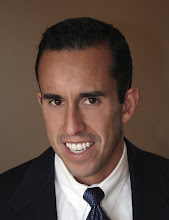If you read my column from last week, you would know that I was talking about how hard it is right now to find a good fix and flip home. Inventory is so low that contractors cannot find enough good homes to buy to sustain their fix and flip market. I have resorted to knocking on doors of duplexes that are not even listed for sale. If you want to re-read that column, go to coloradodreamhouse.com/news.
This week, I want to talk about whether or not you should fix and flip the house or fix and rent. Fix and flip has been the most popular during the last several years because cash is king, and people running this as business want to get their cash out of the house as soon as possible. This formula has worked well while homes were easy to buy at low prices. The reduction in inventory has made this business model much more difficult in the last year. So why not buy a fixer upper and then rent it?
I saw a statistic this past summer that there was only a 1.4% vacancy rate in the city of Denver for rentals. That is historically low and tells us that rentals are in big, big demand, so the fix and rent option looks great. In most cases, you'll not only rent it quickly, you'll get top dollar and probably get a long term rental. If you bought the home at the right price, chances are the property has a positive cash flow, meaning, you are covering the mortgage and making a little money from the rental income.
So why bother to fix and flip when you can fix and rent? You may run into a problem when you are initially trying to purchase the property. If you plan on getting a loan, a lot of lenders do not like to lend on investment properties. Those that do may require 20-30 percent down, may ask you to show your history as a landlord, and will in every case charge a higher interest rate. This becomes a barrier to fixing and renting. Chances are that you'll spend the fix up money on the down payment for the lender. If you cannot meet those qualifications, then you will need to buy the investment property with cash. You could take out a home equity loan from your primary home or you could use a hard money lender (I'll go into that in a column next week).
In the end, both approaches have their pluses and minuses. As I have said many times before, it's not that easy of a business. Although if you have good people helping you make the right decisions, money can be made.
Dan Polimino is a Realtor with Fuller Sotheby's International Realty. He can be reached at DPolimino@fullerproperties.com and www.coloradodreamhouse.com/denverpost
Subscribe to:
Post Comments (Atom)

No comments:
Post a Comment